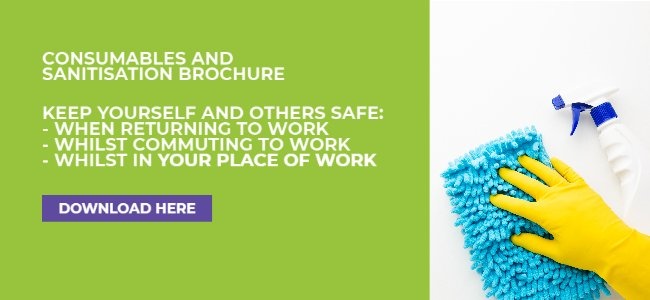On the 5th November 2020, the UK is poised to enter its second period of national restrictions due to the Coronavirus – Lockdown 2.0. Although not popular with many, this second national lockdown is vital in helping control the spread of the virus and minimise the number of deaths across the UK due to COVID-19.
Fortunately, the restrictions put in place by the government for a planned four-week period are not as strict as previously seen. To summarise, the Government are essentially making these changes to the rules across the UK:
- They are requiring people to stay at home, except for specific purposes.
- They are preventing gathering with people you do not live with, except for specific purposes.
- They are closing certain businesses and venues.
So, what are the new rules set out by the Government?
1) Stay at home where possible
The government is asking you, wherever possible, to stay at home. This is, however, not as strict as the initial lockdown in 2020, and specific activities allow a person to leave their home. These include:
- Leaving your home for work when you are not able to work from home.
- Leaving your home for education and childcare where there is no online alternative.
- Exercising outdoors or visiting an outdoor public place.
- Leaving your home for medical appointments or concerns.
- Visiting members of your support bubble or providing care for vulnerable people.
Each of these activities should only be with the people you live with, with members of your support bubble or, on your own.

2) Meeting with family and friends
From November 5th, you must not meet socially indoors with any family or friends, unless you live in the same household. You can however meet with one friend or family member that you do not live with in an outdoor setting. You can also visit outdoor public places with the people you live with.
During this lockdown period, those living alone can have a support bubble. This is where a household with one adult joins with another household. Households in that support bubble can still visit each other, stay overnight, and visit outdoor public places together. You can also meet inside and visit outdoor areas with your support bubble.
Examples of outdoor public places include:
- Parks
- Beaches
- The countryside
- Playgrounds
It has been specified that you cannot meet in a private garden.
In relation to this rule, it is also important to note that children under school age, as well as those dependent on round-the-clock care, such as those with severe disabilities, will not count towards the limit on two people meeting outside.
3) Businesses and venues
In similar fashion to the lockdown we previously experienced, certain businesses and venues have been asked to close to minimise the risk of the virus spreading through social contact. These include:
- Non-essential retail stores, including, clothing and electronics stores, vehicle showrooms, travel agents, betting shops, auction houses, tailors, car washes, tobacco and vape shops.
- Indoor and outdoor leisure facilities such as bowling alleys, leisure centres and gyms, sports.
- Personal care facilities such as hair, beauty and nail salons, tattoo parlours, spas, massage parlours, body and skin piercing services, non-medical acupuncture, and tanning salons.
During this lockdown retailers providing essential goods and services can remain open. These include:
- Food shops
- Supermarkets
- Garden centres
Non-essential retail can however remain open for delivery to customers and click-and-collect. Hospitality venues like restaurants, bars and pubs must close, but can still provide takeaway and delivery services.

4) Going to work
To control the spread of the virus, the Government are asking anyone who can work from home to do so. Where people cannot, they have instructed such people to continue working.
5) Schools, colleges, and universities
The Government has highlighted the importance for children and young people to attend their places of education. Whilst doing so, it has been ensured that the schools have implemented a range of protective measures to make them safe.
It is important to consider that there are additional restrictions in place for those who attend university. If you live at your university, you must not move back and forward between your home and student accommodation during term time. You should only return home at the end of term for Christmas.
6) Travel in the UK and abroad
It is essential that you avoid travelling in or out of your local area where possible. This will help reduce the spread of the virus across the country. However, you can and should still travel for several reasons, including:
- Travelling to work where this cannot be done from home.
- Travelling to education and for caring responsibilities.
- Visiting hospitals and other medical appointments.
- Visiting venues that are open, including essential retail.
- Exercise, if you need to make a short journey to do so
When travelling, it is encouraged that you walk or cycle where possible, and to plan to avoid busy times and routes on public transport.
Overnight stays and holidays away from your place of residence is not allowed. This includes holidays abroad and in the UK.

7) Protecting people more at risk from coronavirus
Unfortunately, there are some people who have a higher risk of serious health implications if they catch the Coronavirus. If you fall into this category, you should be especially careful to follow the rules and minimise your contacts with others and continue to wash your hands carefully and more frequently than usual.
As stated by the government, clinically vulnerable people are those who are aged 70 or over (regardless of medical conditions) and under 70 with an underlying health condition listed below:
- Chronic (long-term) mild to moderate respiratory diseases, such as asthma, chronic obstructive pulmonary disease (COPD), emphysema or bronchitis.
- Chronic heart disease, such as heart failure.
- Chronic kidney disease.
- Chronic liver disease, such as hepatitis.
- Chronic neurological conditions, such as Parkinson’s disease, motor neurone disease, multiple sclerosis (MS) or cerebral palsy.
- Diabetes.
- Being seriously overweight (a body mass index (BMI) of 40 or above).
- Any woman who is pregnant.
8) Financial support
Workers in any part of the UK can retain their job, even if their employer cannot afford to pay them, and be paid at least 80% of their salary up to £2500 a month.
For the full government statement and rulings visit their official guidance page.
Although another lockdown is not ideal for many across the UK, it is vital that we remain positive as a country and follow the rules to ensure that the virus does not spread and the deaths remain as low as possible.

